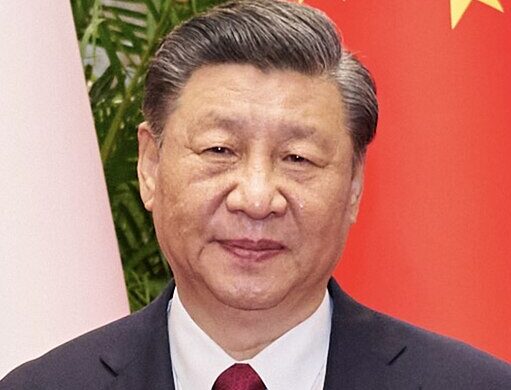Jake Sullivan’s first trip to China as US national security adviser signals continued focus on stabilizing relations amidst global tensions
US National Security Adviser Jake Sullivan’s arrival in Beijing marks a pivotal moment in the ongoing dialogue between the United States and China. His visit, scheduled for Tuesday and Wednesday, is set against a backdrop of complex international relations and domestic political changes. Sullivan’s discussions with Chinese Foreign Minister Wang Yi are part of the Biden administration’s effort to stabilize a fraught relationship with the world’s second-largest economy.
Sullivan’s trip is notable not just for its timing but also for its strategic significance. It follows a series of meetings with Wang Yi over the past 16 months in locations such as Vienna, Malta, Washington, and Bangkok. Their last meeting in January came shortly after a high-stakes summit between Presidents Xi Jinping and Joe Biden aimed at thawing frosty ties. This latest round of talks underscores China’s continued importance in Biden’s foreign policy agenda, even as his presidency nears its end.
Embed from Getty ImagesThe visit also comes at a critical juncture in US-China relations, as Beijing and Washington grapple with various issues, including trade, military tensions, and geopolitical rivalries. The White House has been careful to avoid explicitly linking Sullivan’s trip to the upcoming US presidential election, yet the timing suggests a strategic effort to address key issues before the end of Biden’s term.
China’s stance on the discussions is clear. The Chinese government views this period as crucial, with its Ministry of Foreign Affairs describing it as a “critical juncture.” For China, the Taiwan issue remains a top priority, with Beijing maintaining a firm stance against any perceived moves towards Taiwanese independence. High-profile visits or recognitions related to Taiwan, such as the controversial 2022 visit by then-House Speaker Nancy Pelosi, have further strained relations.
China is expected to use this opportunity to address several key concerns, including US tariffs on Chinese goods. Beijing has labeled these tariffs as “unreasonable” and has called for a reduction in the politicization of trade issues. Additionally, China will likely push for more robust people-to-people exchanges between the two nations, which have been hindered by recent tensions.
From the US perspective, the approach under the Biden administration has been characterized by a desire to manage competition with China through a careful and strategic approach rather than overt confrontation. Despite efforts to stabilize relations, the administration has not reversed many of the trade policies established under President Trump, including tariffs and recent duties on Chinese-made electric vehicles, solar panels, and steel. Biden’s strategy also involves strengthening alliances across Asia to counterbalance China’s growing influence, a move that has prompted concern in Beijing.
The recent turbulence in US-China relations includes incidents such as the downing of a suspected Chinese spy balloon and heightened tensions over China’s alleged support for Russia’s military operations in Ukraine. US Secretary of State Antony Blinken’s visit to Beijing in April further underscored these issues, with Blinken accusing China of aiding Russia and imposing sanctions on Chinese firms.
Despite these challenges, there have been signs of progress. Reports indicate that the US and China have made some headway in curbing fentanyl production, a critical issue for both countries. Sullivan’s previous meetings with Wang Yi have been described as increasingly strategic, with both sides setting aside rhetoric to engage in more substantive discussions.
Sullivan’s current visit aims to build on these foundations and work towards “stable relations” between the two powers. His efforts to engage directly with Chinese officials reflect a broader goal of mitigating mutual distrust and exploring each nation’s real intentions.
Analysis:
Political:
Sullivan’s visit to China highlights the Biden administration’s ongoing commitment to managing a complex and contentious relationship with Beijing. The timing of this visit, as Biden’s presidency approaches its final months, suggests a strategic effort to address significant issues before a potential shift in US leadership. The focus on diplomacy and stabilization reflects a broader attempt to navigate the political landscape both domestically and internationally, with an eye toward ensuring a manageable transition for future administrations.
Social:
The social implications of the US-China relationship are far-reaching. Trade policies, diplomatic tensions, and economic strategies impact everyday life in both countries, influencing job markets, consumer prices, and overall economic stability. As both nations confront issues like tariffs and trade barriers, the social fabric of both societies is affected, particularly in sectors heavily reliant on international trade and cooperation.
Racial:
While the immediate focus of Sullivan’s visit does not address racial issues directly, the broader context of US-China relations can have indirect effects on diverse communities. Economic policies and trade relations can influence employment opportunities and economic equity, potentially impacting racial and ethnic minority groups differently depending on industry and geographic location. Additionally, domestic discussions on China often intersect with racial and cultural narratives, shaping public perception and policy.
Gender:
The gender-related impacts of US-China relations are less overt but still significant. Economic policies, trade decisions, and diplomatic tensions can affect sectors with high female employment, such as manufacturing and services. Additionally, global tensions and trade disputes may influence gender equity in various professional fields, particularly in industries where international trade plays a crucial role.
Economic:
The economic stakes in US-China relations are substantial. Trade policies, tariffs, and diplomatic strategies directly influence global markets and economic stability. The ongoing trade tensions and tariffs imposed by both nations can affect supply chains, consumer prices, and overall economic growth. The focus on stabilizing relations through strategic diplomacy aims to mitigate further economic disruptions and foster a more predictable trading environment.
